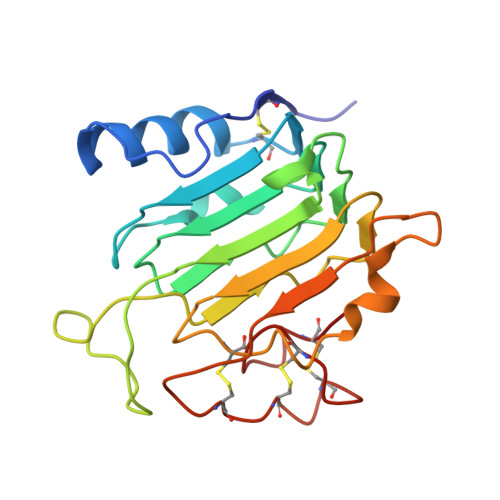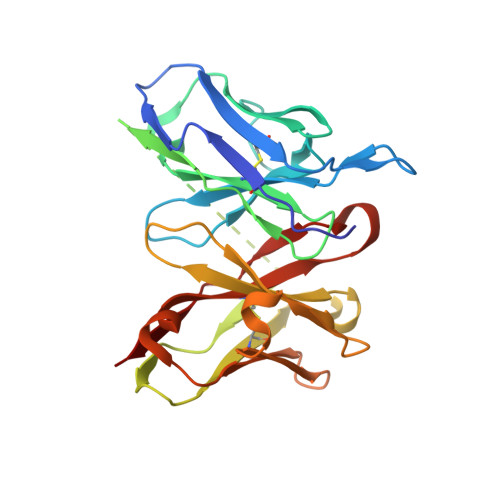Structural Insights into the Down-regulation of Overexpressed p185her2/neu Protein of Transformed Cells by the Antibody chA21.
Zhou, H., Zha, Z., Liu, Y., Zhang, H., Zhu, J., Hu, S., Shen, G., Cheng, L., Niu, L., Greene, M.I., Teng, M., Liu, J.(2011) J Biological Chem 286: 31676-31683
- PubMed: 21680730
- DOI: https://doi.org/10.1074/jbc.M111.235184
- Primary Citation of Related Structures:
3H3B - PubMed Abstract:
p185(her2/neu) belongs to the ErbB receptor tyrosine kinase family, which has been associated with human breast, ovarian, and lung cancers. Targeted therapies employing ectodomain-specific p185(her2/neu) monoclonal antibodies (mAbs) have demonstrated clinical efficacy for breast cancer. Our previous studies have shown that p185(her2/neu) mAbs are able to disable the kinase activity of homomeric and heteromeric kinase complexes and induce the conversion of the malignant to normal phenotype. We previously developed a chimeric antibody chA21 that specifically inhibits the growth of p185(her2/neu)-overexpressing cancer cells in vitro and in vivo. Herein, we report the crystal structure of the single-chain Fv of chA21 in complex with an N-terminal fragment of p185(her2/neu), which reveals that chA21 binds a region opposite to the dimerization interface, indicating that chA21 does not directly disrupt the dimerization. In contrast, the bivalent chA21 leads to internalization and down-regulation of p185(her2/neu). We propose a structure-based model in which chA21 cross-links two p185(her2/neu) molecules on separate homo- or heterodimers to form a large oligomer in the cell membrane. This model reveals a mechanism for mAbs to drive the receptors into the internalization/degradation path from the inactive hypophosphorylated tetramers formed dynamically by active dimers during a "physiologic process."
- School of Life Sciences, Hefei National Laboratory for Physical Sciences at Microscale, Chinese Academy of Sciences, University of Science and Technology of China, 96 Jinzhai Road, Hefei, Anhui 230027, China.
Organizational Affiliation:

















